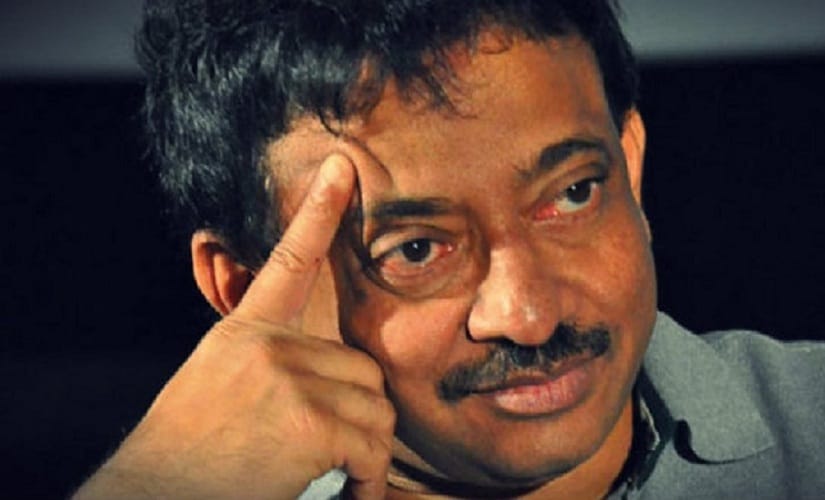Is Ram Gopal Varma an enfant terrible or a mad genuis? Here’s why the disruptor-in-chief still matters
There is a famous quote in Christopher Nolan’s The Dark Knight, where Harvey Dent says, “You either die a hero or you live long enough to see yourself become the villain.” The context might be different but this profound statement applies for so many people who were once our heroes, but today, we just do not know how to perceive their work. And it could not be truer in case of filmmaker Ram Gopal Varma.
The hangover of his earlier works like Shiva, Rangeela and Satya to name a few, is slowly but surely withering away, especially in the face of his more recent works. For the lack of a better phrase, he has pushed us to the crossroads of his career where we are forced to decide whether to follow him or not.
For a lot of aspiring filmmakers, especially in the '90s and early 2000s, RGV was a hero. So much that people have found inspiration in his bravado to break the rules and rebel against the old guard. Telugu cinema, in particular, owes a lot to RGV’s breakout film Shiva (1989), which not only turned its actors and characters into icons but also changed the way films were made. ‘Sound’ became a crucial part of the filmmaking process and also showed how effectively one could use silence and background score to change the effect a scene can have on us, even with minimal dialogues and facial gestures.
All of a sudden, shooting with a ‘steady cam’ became trendy. His subsequent films, like Antham, Raatri, Deyyam, Gaayam, Kshana Kshanam and Govinda Govinda to name a few, left a deep impact on the minds of cinegoers. Once he shifted gears to chart a different path in Hindi cinema with films like Rangeela and Satya cementing his position, his obsession with crime, horror, and drama spawned many more knock-offs. His own proteges and associates went on to make several films over the years, many of which are aesthetically better than the ones created by RGV, so to speak.
As meteoric was his rise in Indian cinema, a lull in the second phase of his career triggered murmurs within the film circles that his mojo had vapourised into thin air at the Factory. And the debacle of Ram Gopal Varma Ki Aag was the wake-up call for many that the RGV they once knew, the RGV that they once looked up to, has gone into hibernation. Yet, there was always hope that he would prove his critics wrong.
There were moments in his subsequent works like Sarkar, Raktha Charithra and Killing Veerappan that were proof enough that RGV had not lost his Midas' touch but that clearly was not enough. Because the norms of our relationship with him had changed. We began questioning his style, his sense of drama and his aesthetics. It just does not fit in anymore. RGV is now a rank outsider, who inspires memes, jokes and brutal criticism, not awe and respect. It is all true. Yet, RGV matters more than ever before.
As ironic as it might sound, RGV is no longer a filmmaker, at least in the conventional sense, today. He does things (films, short films, web-series and the likes of God, Sex and Truth) that give an impression that he has gone rogue. This writer is not even sure if he holds anything dear because he has nothing to lose anymore. And that is what makes him so exciting because he has become so unpredictable that the only analogy I can think of is that of an entrepreneur, who has a bellyful of ideas, without a business plan. Today, his intent of creating something is far more irresistible than ensuring its success. And there lies our problem with him.
A couple of years ago, when this writer interviewed RGV, there was a debate over whether the filmmaker had succeeded in doing what he wanted to in the recent past. He put things into perspective saying, “People don’t follow ideas, they follow success.” And that is the crux of the whole love-hate relationship that people often share with him.
For the uninitiated, he popularised the idea in the Telugu film industry that anyone can make a film with a 5D camera (his experimental film Dongala Muta was shot with 5D cams); anyone can become a stakeholder in a film’s distribution (there was an online auction of his film Anukshanam); anyone can make a film without having to approach studios and release them on digital platforms like YouTube. Most of these failed and a few others had only marginal success.
Over the past few years, more than his films, his interviews and debates on TV have shown us a glimpse of what is brewing in his mind. It is a different issue that most TV anchors are left befuddled when he speaks, often at length, about a wide range of topics including politics, lust, sex and pornography which defies all norms of sense and sensibilities of a majority of audience. And when people, often slyly, imply that his views and ideas have found no takers both within and outside the film industry, he has a logical explanation behind it or his witty replies puncture the seriousness of the conversation. For instance, recently when someone asked him how he expects people to watch his semi-pornography under the disguise of ‘philosophical treatise by Mia Malkova’, he simply replied, “Don’t watch it.” That ended the debate.
It goes without saying that RGV is a non-conformist and everything he does or says is far from what you expect. But that is him and he will not stop being him. A case in point being his choices of cinematography, lighting, and background score in his own films. When this writer once told him that he found them quite jarring, RGV shot back saying, “Just because a certain Hemanth or an XYZ had an issue with my films, I am not going to change anything to please him.” Maybe, he is not even thinking about pleasing or impressing the viewers with his work anymore. He just wants to disrupt the status quo and that is exactly why he still matters. RGV matters because he is that unknown variant in an equation which could alter the result. The only issue is we do not know how long that chain reaction is going to take place to see a result that everyone can emulate.
We look up to people who inspire us to dream big but RGV is not a hero for most people, like he once used to be. He is the disruptor-in-chief who wants to shake things up intentionally. The fact that he is still doing things even if it is utter nonsense that he has envisioned should serve as a reminder that there is no force or ideology strong enough to catch him off-guard to stop him. Whether you believe that he has become a train-wreck, who is out to ruin everything he has created since 1989, or a madman who has no place in the current scheme of things, the converse is also true - he is in a space which scares us because we still have not learnt how to deal with failure. For him, it does not matter.
This brings me to contemplate about our own expectations that we have when it comes to the very people we idolise. We cannot bear to see them fail. We cannot defend them when they take a stance that feels morally wrong. We cannot fathom some of their unpopular decisions. In RGV’s world, there is no place for any of this. You do not have to even like or admire him anymore because if someone like RGV had bothered about such things that would perhaps unleash an apocalypse.
So what do we do with him and how do we perceive everything that he has been doing? The best thing to do is...well...not lose our mind over him. Because every time you turn him into a meme or a joke, chances are higher than he is laughing at it more than you did. Then, the joke is clearly on us.
To quote Ayn Rand, one of RGV’s favourite authors and influencers, “The question isn't who is going to let me. It's who is going to stop me.” As far as anyone can see, there is no force on this planet which is going to stop RGV. At least, not yet. And if you have not already, he is going to make a sequel to God, Sex, And Truth!
Published Date: Feb 01, 2018 09:47 AM | Updated Date: Feb 01, 2018 09:47 AM


